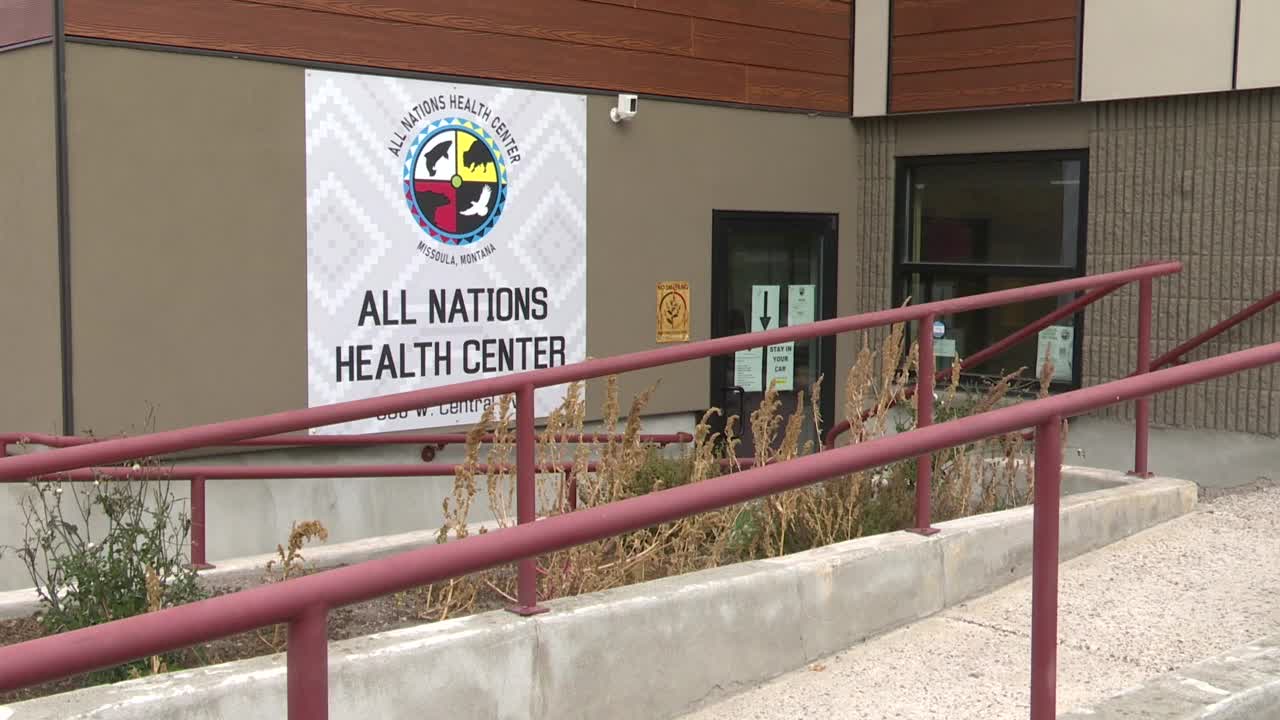MISSOULA — The Missing and Murdered Indigenous Peoples (MMIP) crisis is inextricably connected with domestic violence, and that’s backed up by the U.S. Department of Justice.
According to a 2016 National Institute of Justice report, 83% of Native American and Alaska Native men and women have experienced violence in their lifetimes.
That’s more than 2.9 million people. A similar scale would be more than twice the population of Montana. Among that population, 38.2% of women and 16.9% men who were victims of intimate partner or sexual violence were unable to get the services they need.

The All Nations Health Center is one organization working locally to bridge that gap. Domestic violence survivors often need services whether that’s related to moving through the legal system, receiving healthcare, or gaining access to mental health services.
“We have really a capacity to offer counseling services, culturally-based services that help survivors reconnect with their culture and help heal in that way,” Skye McGinty, All Nations Executive Director, told MTN News.
All Nations provides primary care, behavioral health, and promotional health services in-house. And with the support of a Department of Justice Grant, Project Beacon helps the Center provide services to victims of human trafficking and sexual violence.
“It is specifically aimed at combating the sex trafficking of Native women and girls throughout Indian country which is a huge issue right now as we know with the Missing and Murdered Indigenous Peoples crisis,” McGinty explained, adding that domestic violence is deeply rooted within the crisis.
“It's inseparable from the crisis of domestic violence and sexual violence, and we see, you know, typically a lot of folks who have that kind of trauma in their background, whether that's childhood trauma or as an adult, especially for our Native women and our Native girls, sometimes that does contribute to them being trafficked or being disappeared," McGinty said.

The Missoula County Community Justice Department also offers programs to help victims, particularly with navigating the legal system.
“It's not just Missoula, it's not just Montana, it is across the nation, and Indigenous women are statistically speaking at highest risk of violence, particularly from non-Native assailants." - Missoula County Community Justice Department Director Shantelle Gaynor
According to the same National Institute of Justice report, among Native American and Alaska Native victims, 96% of women and 89% of men have experienced sexual violence by an interracial perpetrator.

According to the Institute, this data points to a dangerous gap: most federally recognized Tribes generally don’t have the legal authority to criminally prosecute non-Natives even for crimes committed on Tribal lands.
“Anytime you have a group that's marginalized otherwise, they are at higher risk for victimization. Part of that is, there are people who act as predators and they specifically seek out folks who they're more likely to be successful victimizing. It's a hard truth, but it is, it's part of how some people perpetrated crimes against other people. Not all, but some," Gaynor said.





